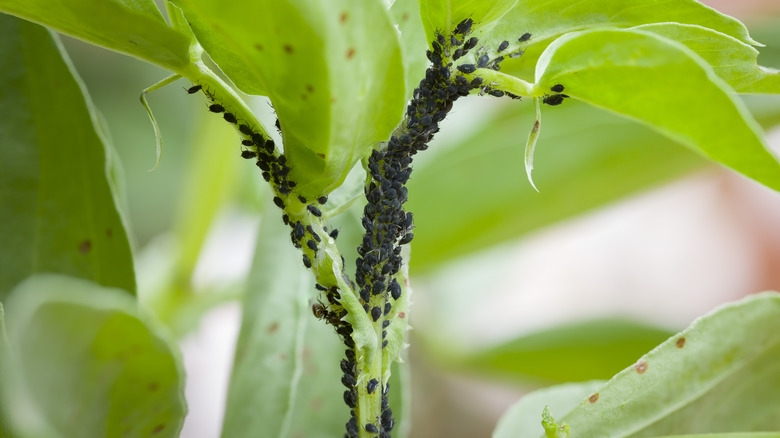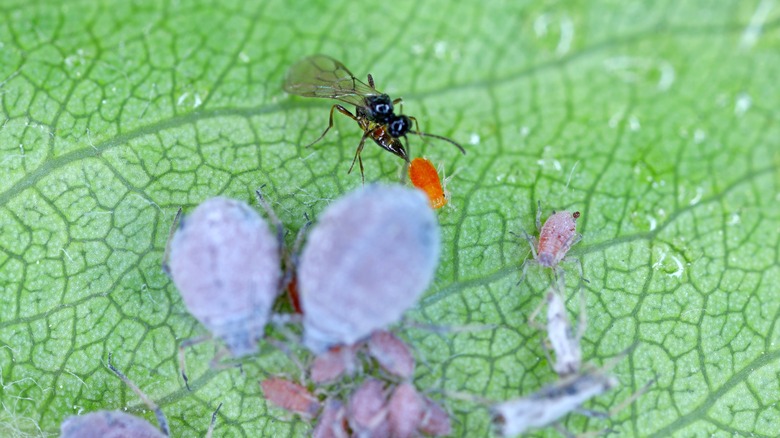The Scary Sounding Wasps That Can Help Control Your Aphid Problem
Aphids can create all kinds of destruction in your garden, causing disfigured or yellowing leaves on your plants and trees and even spreading diseases to your plants. Luckily, parasitic wasps can help you control these pesky bugs naturally and without pesticides. While the name for these wasps might sound terrifying, it turns out they're the good bugs that'll chase pests from your garden. Parasitic wasps are not harmful to people — in fact, they don't even sting. These flying insects are very tiny, typically ⅒ to ½ inch in length, and can be brown or black. Usually, these insects are difficult to see, but they can be a tremendous help in the garden by attacking unwanted pests.
There are various species of parasitic wasps, and each of them are more likely to target certain pests. For example, Aphidius colemani prefers to attack melon and green peach aphids, while Aphelinus abdominalis go after potato aphids. Generally, wasps in the Braconid family, and more specifically in the genuses of Aphidius and Aphelinidae, will help you get rid of aphids.
How parasitic wasps can help control aphids
Parasitic wasps kill aphids by laying their eggs inside these insects. The egg will then develop into a larvae and later a pupae, which will continue eating its way through the aphid as it grows. These wasps will live inside their aphid host until they reach adulthood, when their diets switch to nectar. Though this may seem like a slow process, a single female wasp can lay eggs in hundreds of aphids, quickly killing off these annoying garden pests.
By bringing parasitic wasps into your outdoor space, you can help keep aphids out of your garden without the use of insecticides. Parasitic wasps can also prove beneficial in greenhouses. You may be able to attract these helpful wasps by planting flowers that the adults enjoy, such as white clover, anise, and mustard plants. Though you might not ever see these minuscule wasps in your garden, if they arrive, you will find swollen, dead, and discolored aphids, also referred to as mummies. Parasitic wasps may also be purchased from some garden or pest control retailers or online, though it's important to pay attention to the species of wasp as well as the type of aphid you're trying to kill.

